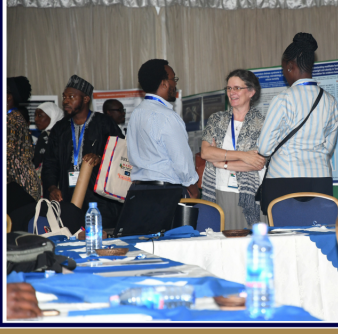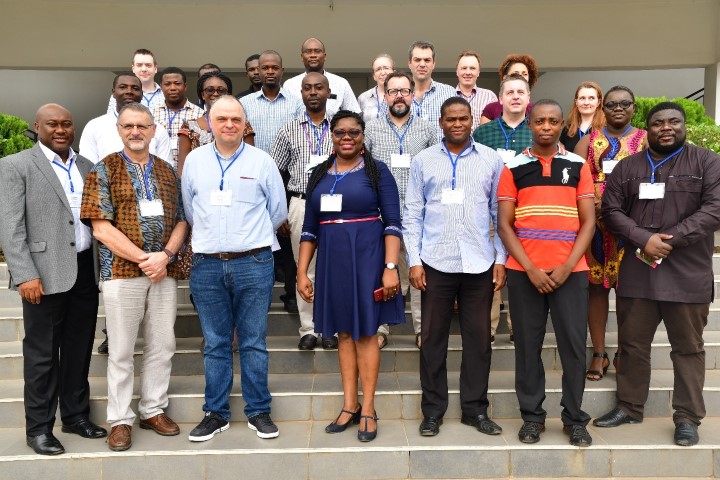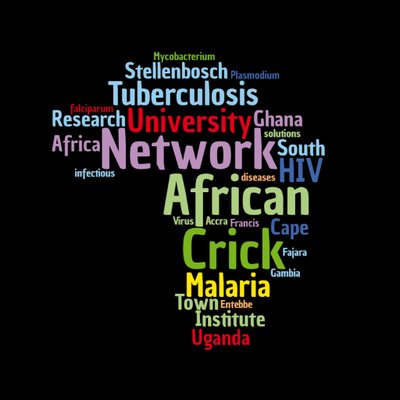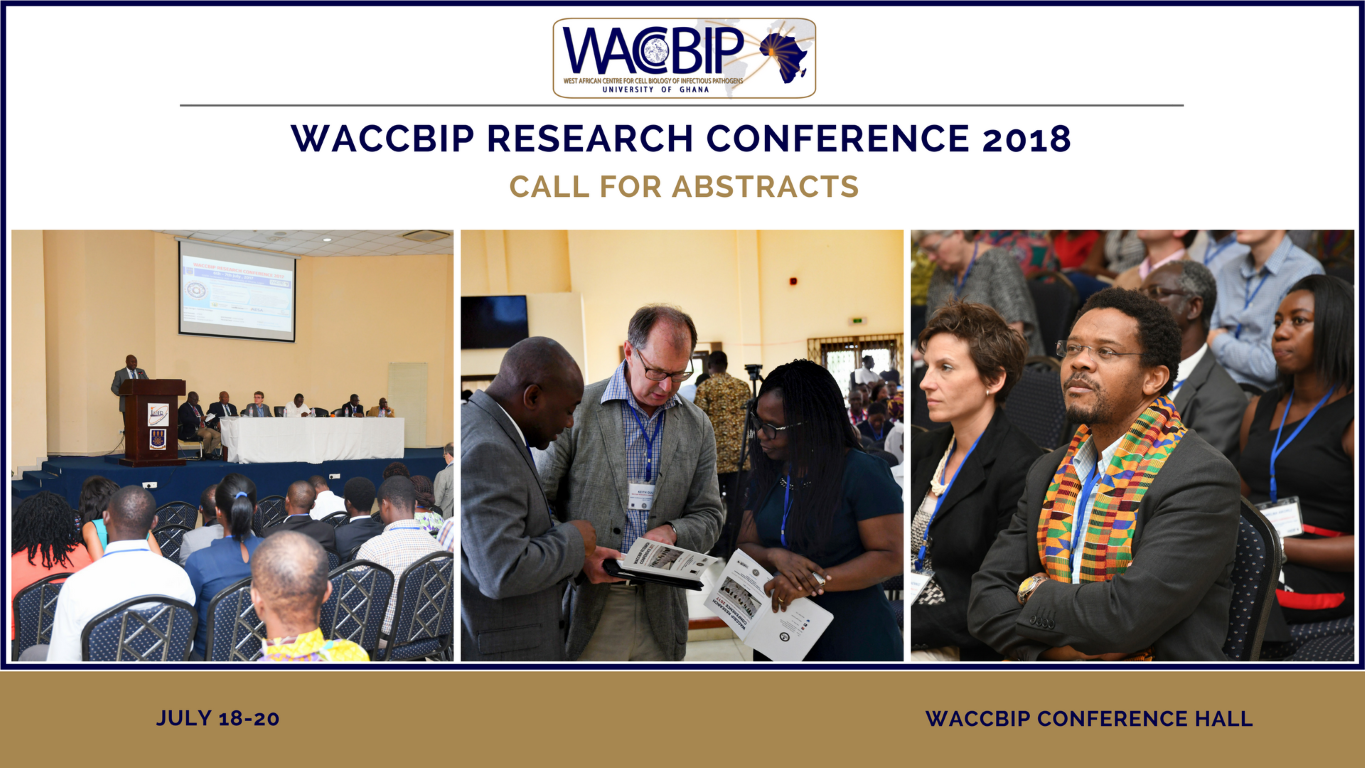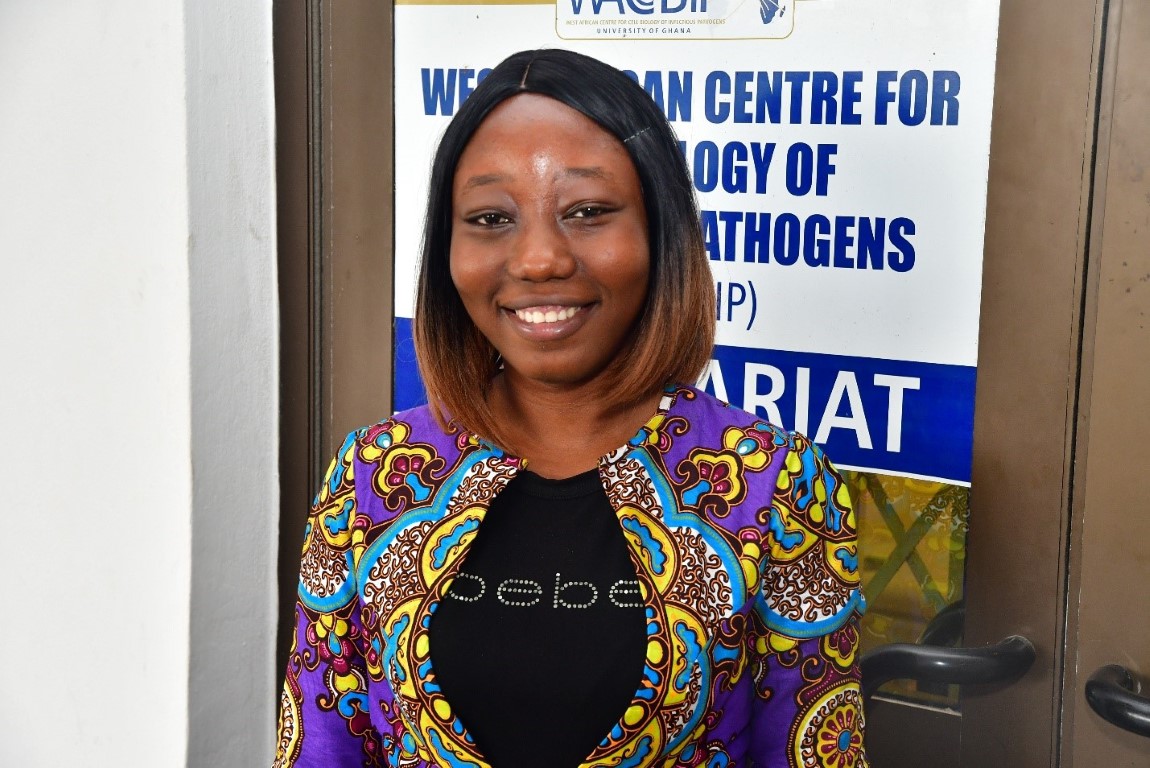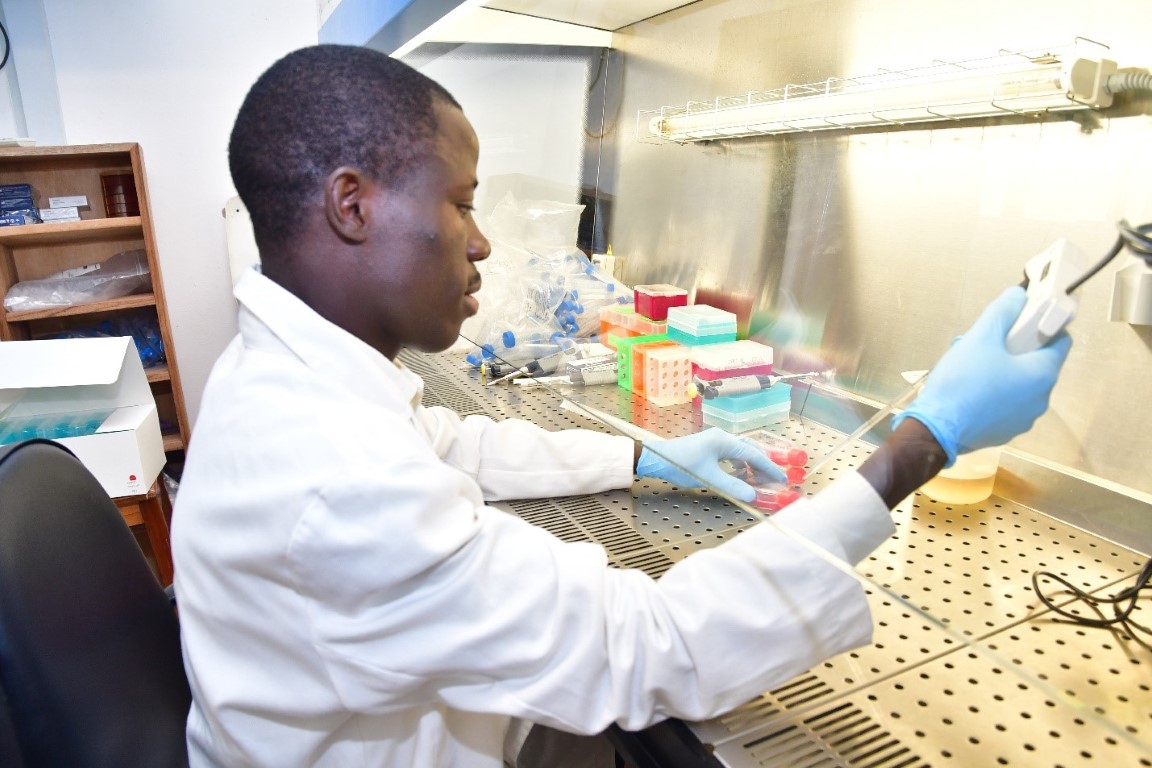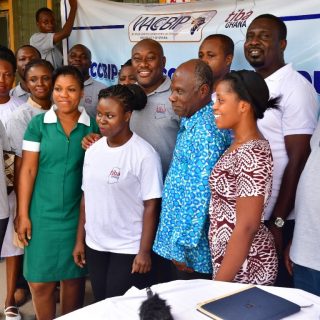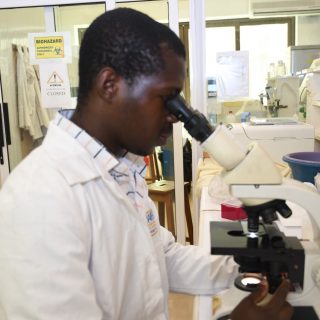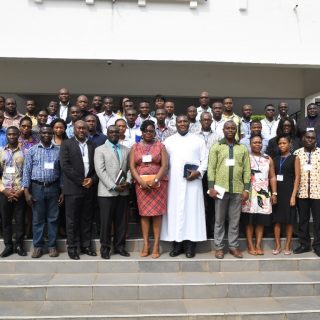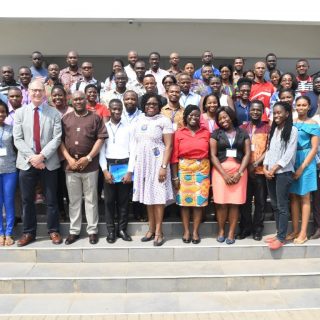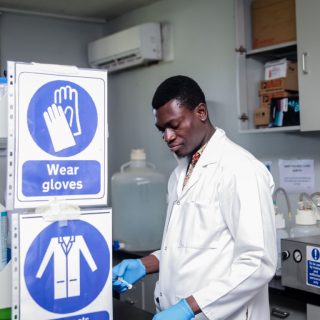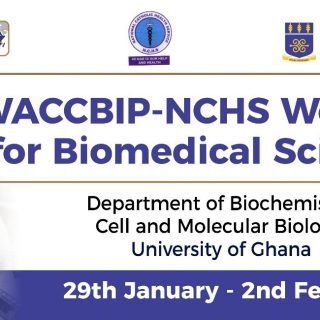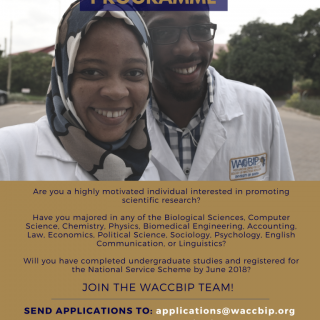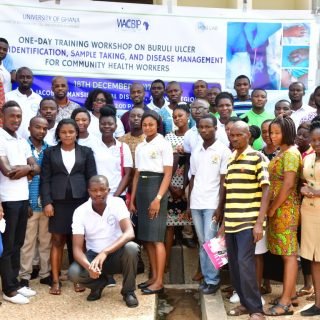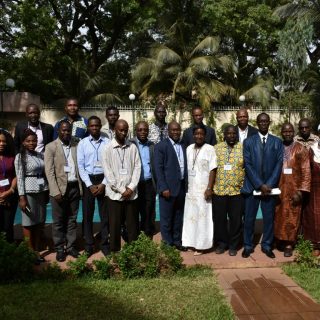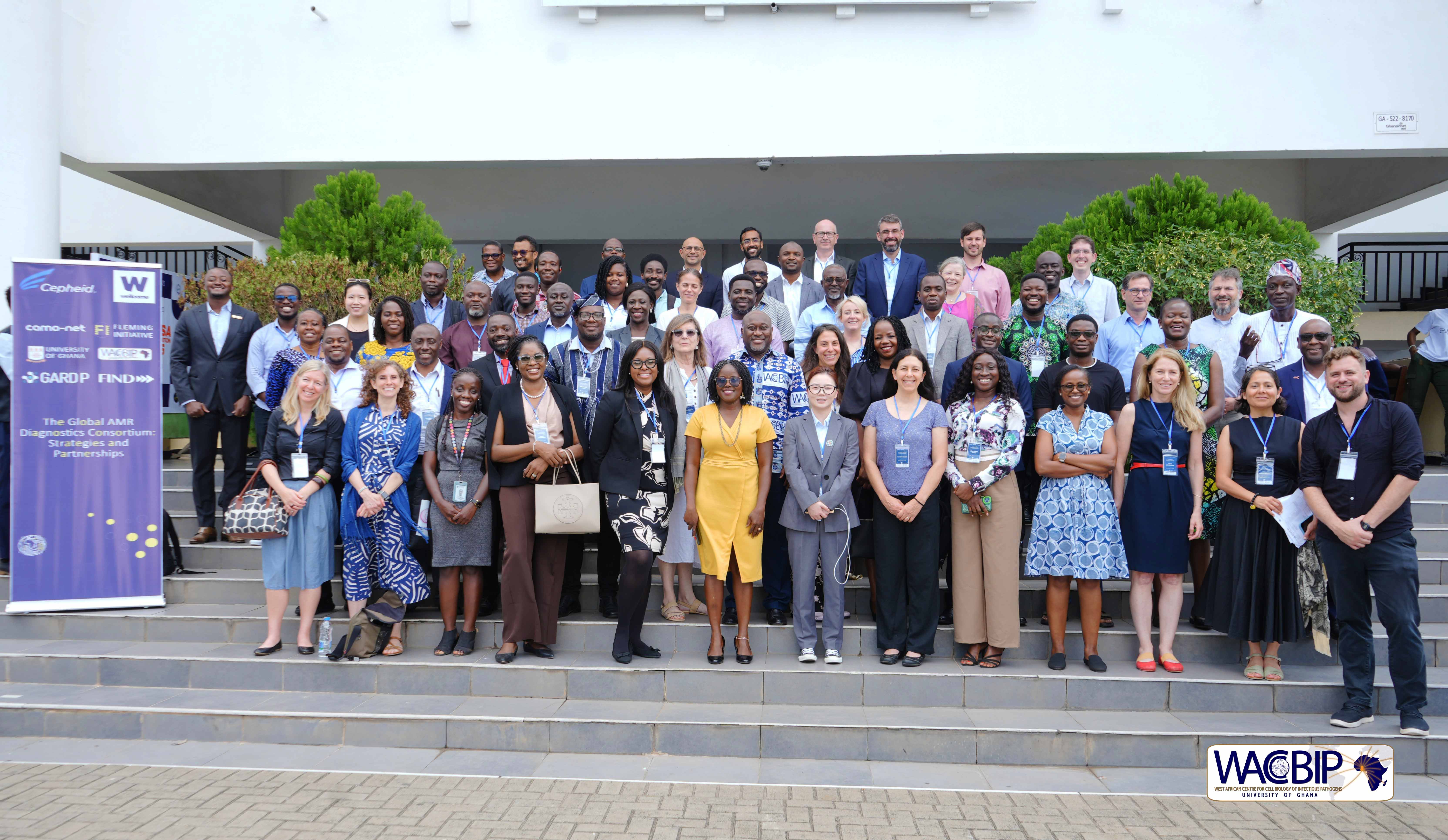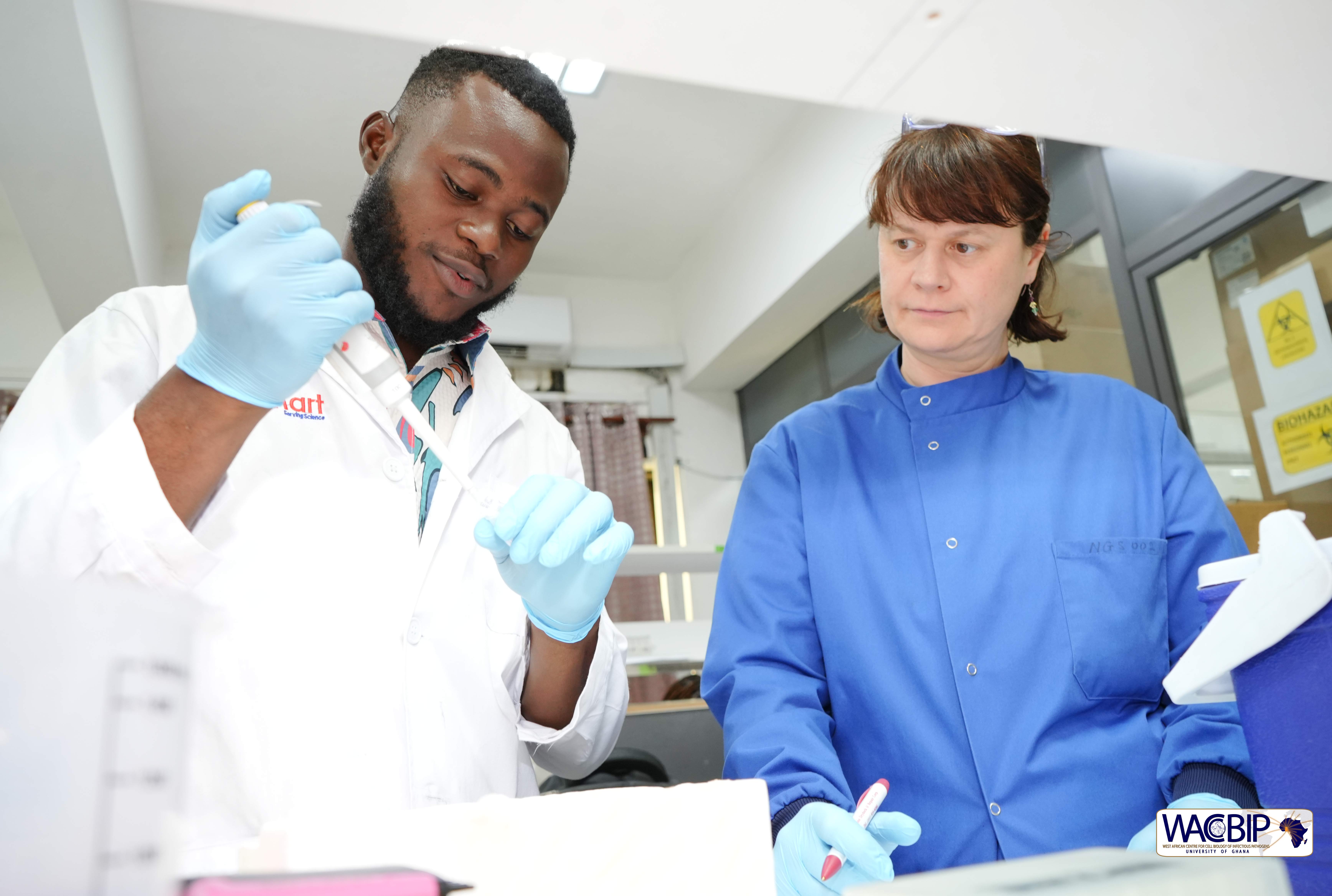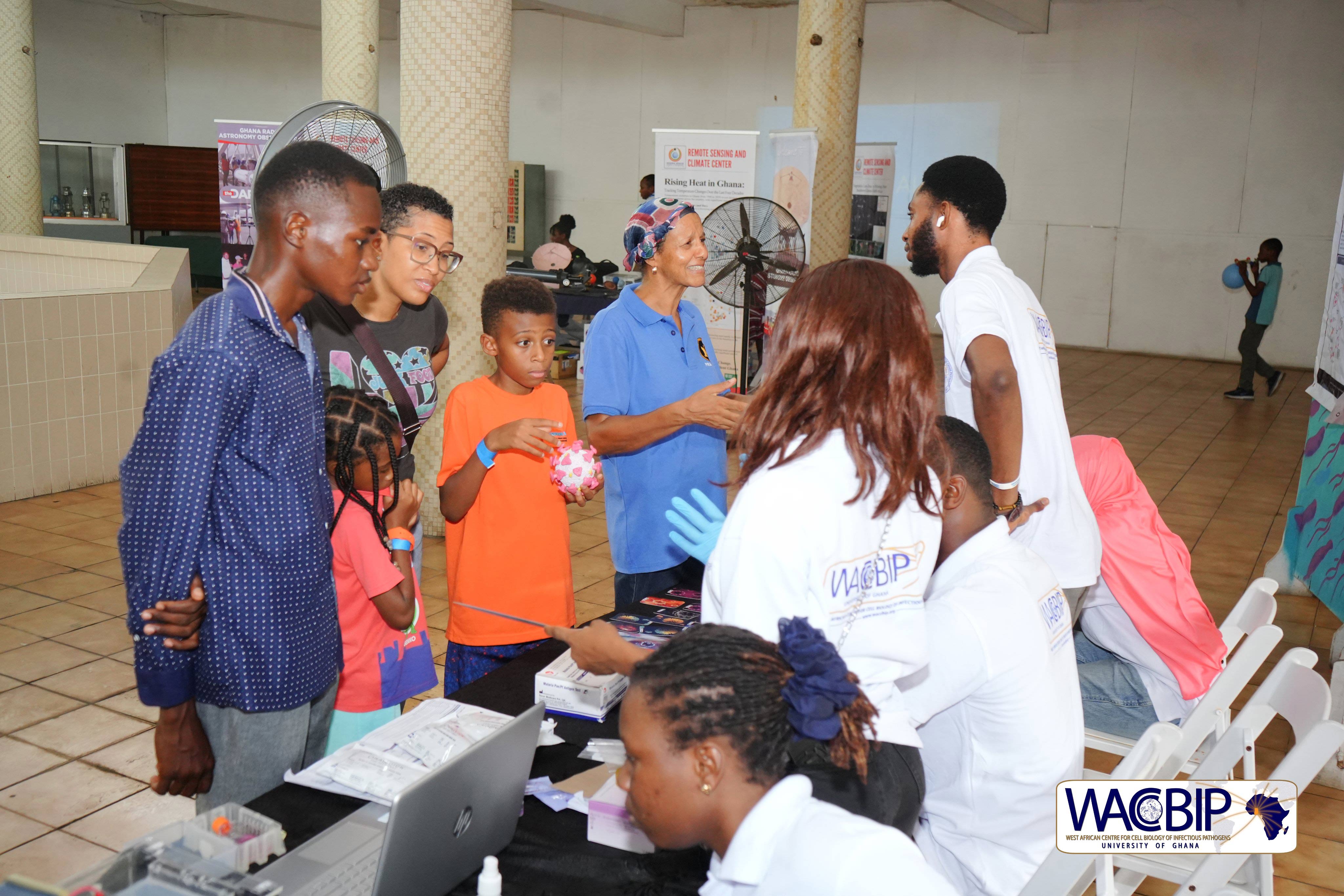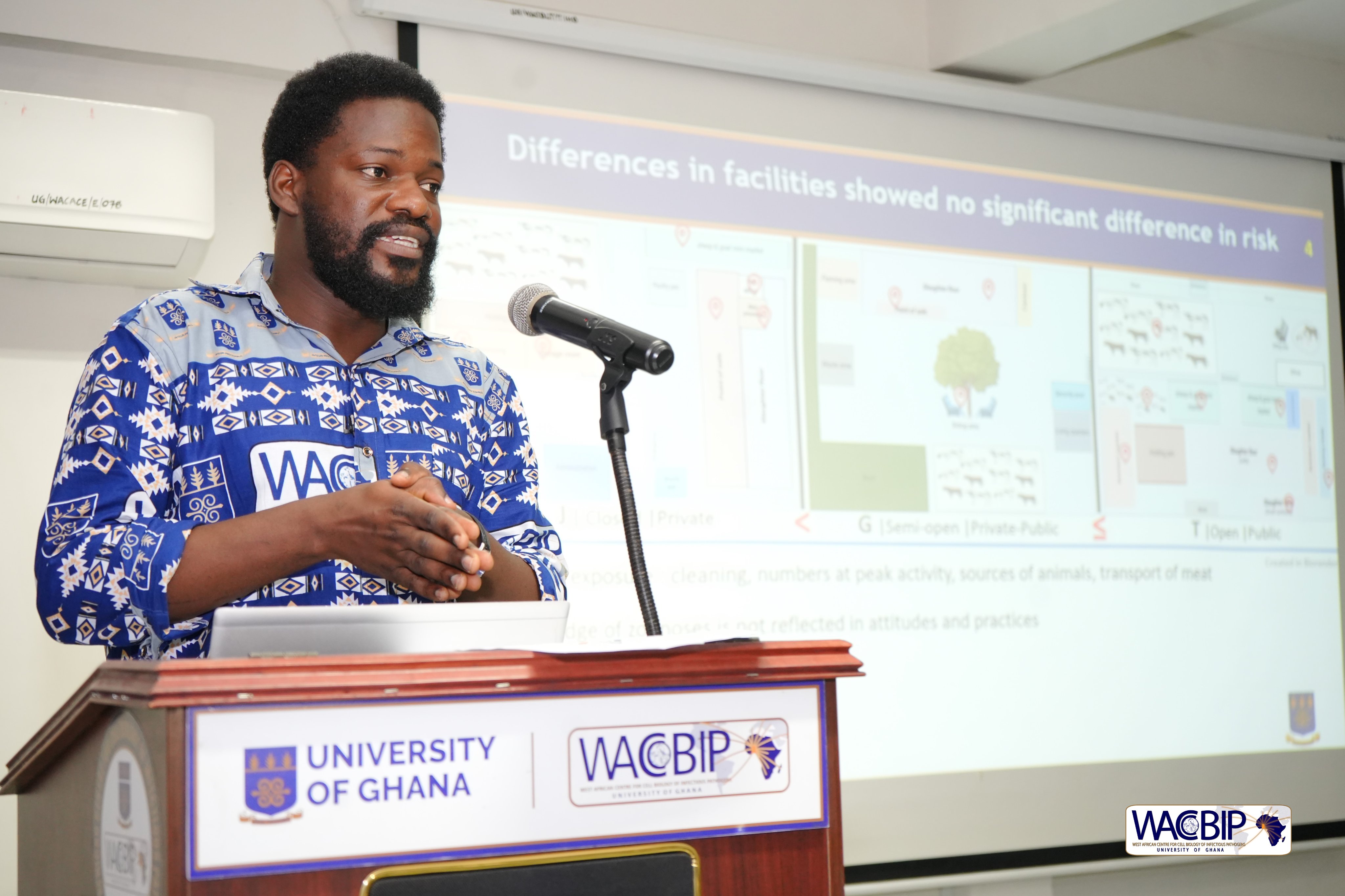We are happy to announce that registration for this year's WACCBIP Research Conference, which will be held from July 18-20, 2018, is open.
A delegation from the Centre of Experimental Medicine (CEM) at Queen's University in Belfast, Northern Ireland, has visited the West African Centre for Cell Biology of Infectious Pathogens (WACCBIP) as part of arrangements to establish a collaborative research partnership between the two Centres.
WACCBIP is pleased to announce that the Crick African Network is accepting applications for the African Career Accelerator Awards, which will provide Fellowship support for African Post-Doctoral researchers aiming to make the transition to becoming an independent researcher and launching their own research group.
The West African Centre for Cell Biology of Infectious Pathogens (WACCBIP) is organizing the third in the series of annual research conferences to provide a platform for graduate students of the Centre to present their research work to a wide audience.
This week's student spotlight is Cynthia Mmalebna Amisigo, a final year MPhil student with the West African Center for Cell Biology of Infectious Pathogens (WACCBIP). Cynthia is driven by the passion to positively change the world with her research, which is to eradicate African animal trypanosomiasis (AAT), a parasitic disease that causes economic losses in livestock.
This week's Student Spotlight shines on Daniel Awudu Kwadwo Aquah, a final year MPhil student. For Daniel, being in the Cell Biology and Immunology Laboratory is an extra commitment that he considers not only a good preparation for his research career, but also a solid platform for learning how to communicate his research activities to the public.
As part of its activities under the Tackling Infections to Benefit Africa (TIBA) partnership, the West African Centre for Cell Biology of Infectious Pathogens (WACCBIP) on Friday, February 23, 2018, visited the Ewim community in the Central Region of Ghana, to discuss malaria prevention, treatment, and control.
Growing up, Prince Berko Nyarko could have chosen a career in either sports or science; he chose science. Now an MPhil student with WACCBIP, Prince Berko is getting closer to his dream of eradicating malaria by working with other scientists at the Cell Biology, and Immunology Laboratory, under the mentorship of Professor Gordon Awandare, towards developing a vaccine for the disease.
Researchers from the West African Centre for Cell Biology of Infectious Pathogens (WACCBIP) have trained biomedical scientists from the National Catholic Health Centre (NCHS) at the Department of Biochemistry, Cell and Molecular Biology of the University of Ghana.
The West African Centre for Cell Biology of Infectious Pathogens (WACCBIP) has hosted scientists from the American Society for Cell Biology (ASCB) and the TrypTag team from the Dunn School of Pathology of the University of Oxford for the third WACCBIP-ASCB-Oxford workshop, which was held from January 17, 2018 to January 26, 2018, at the Department of Biochemistry, Cell and Molecular Biology (BCMB).
The West African Centre for Cell Biology of Infectious Pathogens (WACCBIP) is pleased to announce three open PhD fellowship positions for the 2018-2019 enrollment; two in Host-Pathogen Interactions (offered in partnership with the University of Copenhagen), and another in Human Genetics (offered in partnership with the University of Cape Town).
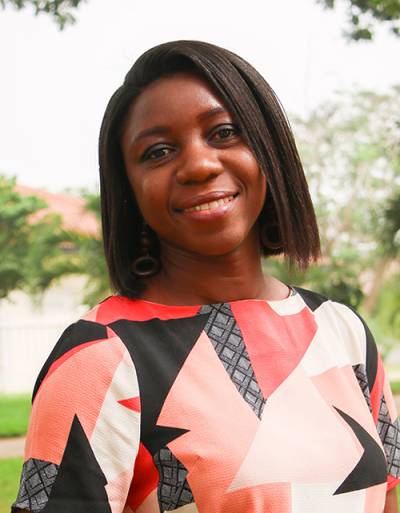
Dr. Akorli is a Postdoctoral Fellow (2016-2019) at the DELTAS Africa funded West African Centre for Cell Biology of Infectious Pathogens (WACCBIP) and a Research Fellow at the Department of Parasitology, Noguchi Memorial Institute for Medical Research (NMIMR). She is also a fellow of the Cambridge-Africa Partnership for Research Excellence (CAPREx) (2017-2018). She holds a BSc degree in Zoology from the University of Ghana and, a PhD in Evolutionary Genetics from the University of Cambridge, UK. Dr. Akorli has broad interests in mosquito-borne disease and Neglected Tropical Disease research. She aims to contribute to understanding host-vector-parasite interactions by applying the in-depth information that can be obtained from using genomic tools. Her current projects under the WACCBIP and CAPREx Fellowships investigate interactions between environment, mosquito vectors, symbionts, human host and mosquito-borne parasites, to increase knowledge and advance efforts in new strategies for disease control in endemic settings. She is also currently a co-investigator on the NIH-NIAID-funded Tropical Medicine Research Centre grant award at NMIMR.

Dr. Kusi is an Immunologist and a part-time lecturer in Biochemistry at the West African Centre for Cell Biology of Infectious Pathogens (WACCBIP). He is also a Research Fellow with the Noguchi Memorial Institute for Medical Research (NMIMR). Dr. Kusi has postgraduate training in Biochemistry from the University of Ghana and graduated with a PhD in Medicine (Vaccine Immunology) from Leiden University Medical Centre, in The Netherlands, in 2012, based on work he did at the Biomedical Primate Research Centre in Rijswijk, in The Netherlands. He undertook postdoctoral training between 2012 and 2014 at NMIMR on the development of sero-epidemiological models for predicting malaria transmission intensity in disease endemic areas. His research interests include identification of immunodominant T cell epitopes in Plasmodium antigens for vaccine design and the identification of antibody correlates of immunity against clinical malaria in children.
WACCBIP is proud to be associated with Drs. Akorli and Kusi.
The West African Centre for Cell Biology of Infectious Pathogens (WACCBIP) will, from Monday, 29th January to Friday, 2nd February 2018, host a training workshop for biomedical scientists from Catholic health centres in Ghana at the Department of Biochemistry, Cell and Molecular Biology of the University of Ghana.
The Malaria Research Capacity Development (MARCAD) consortium is offering a fully funded three-year PhD fellowship at the University for Health and Allied Sciences (UHAS) in Ho. The position is open to nationals of any African country, who would normally be resident in West or Central Africa.
“WACCBIP has been an important launch in my career. With the experience I have gained, I am confident that I can make lasting impacts in any field in my career as an accountant”
Researchers at the West African Center for Cell Biology of Infectious Pathogens (WACCBIP) have held a one-day training programme aimed at equipping health workers with the requisite skills to identify and manage Buruli ulcer cases.
The KEMRI Wellcome Trust, a DELTAS Africa programme, is looking for an experienced post-doctoral social scientist who will develop and run a programme of work around the social science and ethics of research involving Controlled Human Infection Models, in which researchers expose participants in a controlled way to specific disease pathogens to study processes of infection and immunity.
As part of the WACCBIP-DELTAS programme, the West African Centre for Cell Biology of Infectious Pathogens (WACCBIP) organised its second Bioethics Training Workshop for postdoctoral fellows and stakeholders from institutions across the West African sub-region, with support from the Malaria Research and Training Centre (MRTC) at the University of Sciences, Techniques and Technologies of Bamako (USTTB).
- WACCBIP completes three events under first ever TB/ medical outreach programme
- WACCBIP PARTICIPATES IN MAIDEN JOINT WORLD BANK ACE I & ACE II PROJECTS WORKSHOP
- WACCBIP 2nd Bioethics Workshop - Mali
- University of Ghana Host Prof. Peter Agre, 2003 Nobel Laureate for Chemistry
- Seventh African Centres of Excellence (ACE) project workshop - Lagos, Nigeria
- WACCBIP Hosts Sanger Institute's Advanced Course on Malaria Experimental Genetics
- WACCBIP Public Engagement Outreach Programme To KNUST
- Vice Chancellor Performs Groundbreaking Ceremony For The Construction Of The New WACCBIP Building (Biochemistry Annex)
- GBC Conference 2016 - Call for Abstracts
- Call for Abstracts ”“ WACCBIP Research Conference 2016
- 3rd Workshop on Molecular Biology, Pathogenesis, and Diagnostics of Neglected Diseases
- WACCBIP ”“ ASCB Holds Workshop on Modern Cell Biology
- WACCBIP UPCOMING EVENTS
- WACCBIP researchers train community health workers on Buruli ulcer identification
- CAREER OPPORTUNITY: POSTDOCTORAL SOCIAL SCIENTIST
- WACCBIP hosts first Crick African Network Research Methods Workshop
- WACCBIP Holds Second Bioethics Workshop in Bamako, Mali
- WACCBIP completes three events under first ever TB/ medical outreach programme
- WACCBIP PARTICIPATES IN MAIDEN JOINT WORLD BANK ACE I & ACE II PROJECTS WORKSHOP
- African scientists to get new open-access publishing platform for their research
About WACCBIP
In response to the World Bank’s call for proposals for African Centres of Excellence, the University of Ghana proposed the establishment of the West African Centre for Cell Biology of Infectious Pathogens (WACCBIP) at Legon.


